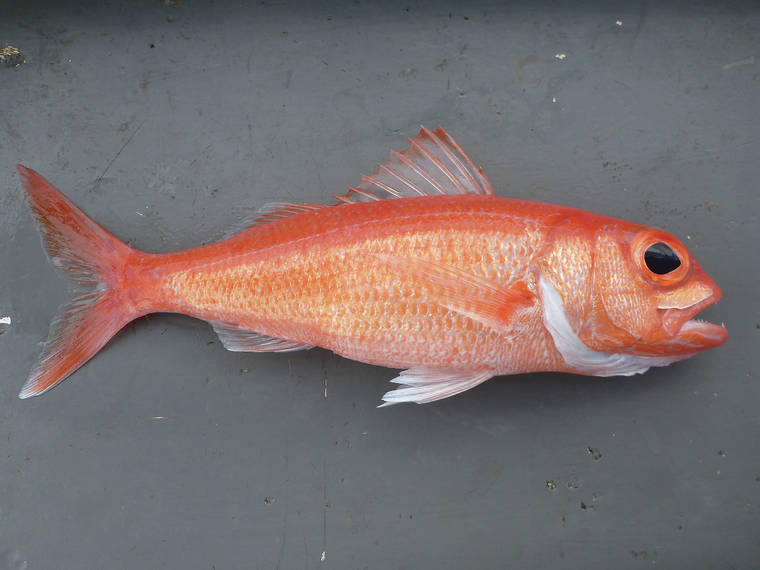HONOLULU — A new species of fish has been discovered during a research study funded by the National Science Foundation and University of Hawaii Sea Grant College Program that focused on deepwater snappers.
HONOLULU — A new species of fish has been discovered during a research study funded by the National Science Foundation and University of Hawaii Sea Grant College Program that focused on deepwater snappers.
The new species was named “Etelis boweni” by the research team in recognition of Brian Bowen, a research professor from the University of Hawaii who has spent over three decades studying marine fish, the Honolulu Star-Advertiser reported Sunday.
Bowen called the naming “an honor of a lifetime.”
A new paper in the Journal of Fish Biology names the new type of fish, which looks similar to other deepwater snappers found in Hawaii but is genetically different.
Both fish species are bright pink in color and occur at depths of 650 to 1,300 feet across the Indian and Pacific oceans, the newspaper reported.
The Etelis boweni grows much larger than its counterparts in Hawaii and has smaller eyes.
Kim Andrews, the scientist who led the international research team, said the discovery was valuable because the new species can now be managed differently than its deepwater snapper counterparts.
“The discovery of the new species has important implications for fisheries management, especially in areas where both species occur together, since it’s important for different species to be managed separately,” Andrews said in a statement.
Bowen has been a research scientist at the Hawaii Institute of Marine Biology at the University of Hawaii since 2003. He leads a research lab that has used genetics to aid the conservation and biodiversity of marine fishes.
“It is particularly fitting to name this species after Brian since he specializes in fish genetics, and it was the genetic data that led to its discovery,” Andrews said.

Subscribe today for unlimited access.
Already a subscriber?
Login
Not ready to subscribe?
Register for limited access.
If you have a print subscription but require digital access,
activate your account.



